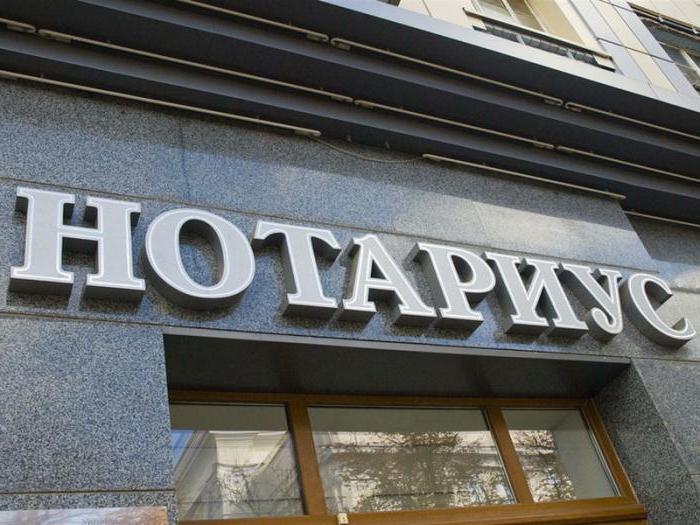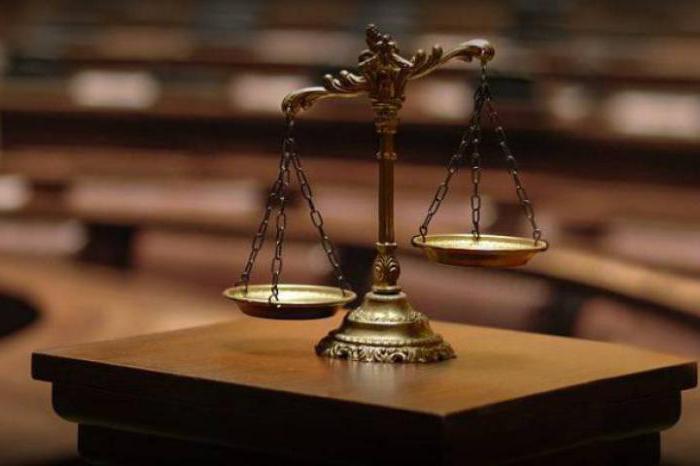A power of attorney is the transfer of authority to represent and act from another person in the legal field. As a rule, two parties participate in the document - the person whose interests represent (principal), and the person to whom it is drawn up (attorney). A power of attorney is very common for a bank, which is compiled for individuals and for organizations. The standard validity period of this document is 1 year.
The concept of power of attorney: what does it mean
This is a written authorization issued by one person to another to represent interests before third parties. A power of attorney is a one-way transaction containing the powers of an attorney. It is compiled according to certain rules and norms, in accordance with the civil code of the Russian Federation. It can be compiled by any notary public on the territory of the Russian Federation, and it does not matter where the principal and attorney are. However, it is possible to use only the original, the copy is not considered valid.
Consider what a power of attorney in more detail.
Classification of this type of document
There are several ways to classify powers of attorney: by the number of parties involved in the drafting process, by the number of powers granted to the attorney, by the time period for which it is drawn up, and by the form of the document itself.
By the number of parties distinguish unilateral (one principal and one representative - the attorney) and multilateral (two or more principals and representatives).
By the number of powers that are assigned to the attorney, distinguish:
1. A one-time form (issued for the performance of one specific and specified in the power of attorney goals). For example, selling a home or signing a contract.
2. A special form (compiled to perform several identical actions). An example is a power of attorney for driving a vehicle, a power of attorney for retirement.
3. General form (unlimited scope of actions on behalf of the principal). For example, the disposal of the property of the principal in his long absence.
According to the period for which the power of attorney is issued, they distinguish between urgent (issued for the agreed period) and unlimited (it can only be canceled in special cases). An example of the latter is the so-called irrevocable power of attorney, drawn up, for example, in the course of entrepreneurial activity. Such a power of attorney usually stipulates the conditions for its cancellation, in accordance with the norms provided for by the Civil Code.
What is a power of attorney, many are interested.
The form distinguishes between a written power of attorney and a notary certified. A notarized power of attorney is drawn up either at will or at the request of the law.
Notary certification
When concluding transactions, drawing up state rights, as well as when disposing of rights registered in state registers, the power of attorney must be notarized. The power of attorney for receiving funds or cargo can be downloaded online. There are cases provided for by the Civil Code of the Russian Federation in which the power of attorney is identical with a notarized one:
1. The document of a military man undergoing treatment in a hospital and any other military medical institutions located in the jurisdiction may be certified by the chief physician, his deputy for medical. parts or doctor on duty.
2. A document of the military, in which there is no notary public, may be certified by the head of the unit to which the soldier belongs, the unit’s employees or members of their families.
3.Documents of prisoners can be certified by the head of the prison.
4. Legally capable citizens over 18 years of age who are in the care of social protection are certified by the administration of the institution.
special instructions
Power of attorney for cargo, to receive payments on wages, scholarships, pensions, fees, letters and magazines (except for valuable correspondence), are certified by the administration at the place of work or study of the principal. The same applies to obtaining tests in medical institutions. It is important to understand that a power of attorney is not required by law for the transportation or receipt of cargo; it is made up in order to ensure safety and security.
What is a power of attorney, we explained.
When representing the interests of a legal entity, a power of attorney is signed by the head or his representative on the basis of the constituent documents of the company. When it comes to state property, a power of attorney is also signed by the chief accountant of the organization.
An irrevocable power of attorney is always executed in a notarized form (indicating the possibility of its revocation), and a power of attorney for a person based on the transfer of rights (except in those cases where legal entities appear).
Transfer of rights
According to the rules, the person in whose name the power of attorney is drawn up must independently carry out the actions prescribed in the document. The attorney may delegate his authority to the representative if it is provided for by the main power of attorney or by virtue of the circumstances in order to comply with the interests of the principal.
Powers are transferred on the basis of a new power of attorney, in which the initial and new attorney appears. A document issued on the basis of a submission must not contradict the content of the main power of attorney. The reassignment can be full or partial (only for certain actions), but the number of powers cannot be supplemented by new ones. So you can draw up a power of attorney to retire.
Validity
As for the validity period, it must be identical to the main power of attorney, or be reduced. If the main one does not contain information about the possibility of reassignment, then this procedure will not be feasible.
After the registration procedure on the basis of a transfer, the first attorney is obliged to notify the principal about this and provide the latter with information about the new attorney. After that, the principal makes the decision on retaining authority for the new attorney or on canceling those. If the original attorney did not transmit the information to the principal, then he will be responsible for any actions of the new attorney prescribed in the power of attorney.
The reassignment is automatically canceled upon withdrawal of the main power of attorney.
Expiration date
Any power of attorney is urgent. Its term is indicated at the time of compilation by the principal and cannot exceed three years. In the case when the validity period is not specified, the power of attorney ceases to be valid one year after signing.
If the indication of the expiration date of the power of attorney is not mandatory, then without the date of compilation it will be considered invalid. Indeed, without a specific date of signing, it will not be clear what the validity period is. The accounting of powers of attorney must be strictly observed.
Reasons for recall
The power of attorney is revoked for the following reasons:
1. Expired.
2. The principal cancels the power of attorney.
3. The attorney is denied the exercise of authority.
4. If the legal entity being an attorney undergoes a reorganization or merger.
5. Death, incapacity of the principal, or recognition of him as missing.
6. Death, incapacity of the attorney, or recognition of him as missing.
After the revocation of the power of attorney, the principal must inform the attorney and third parties about its cancellation. The attorney or his representatives must return the power of attorney immediately. This also applies to the power of attorney for signature.
The law does not provide an answer to the question of in what form it is necessary to notify the revocation of a power of attorney. In accordance with generally accepted practice, a letter is compiled for all persons involved in the document. The power of attorney ceases to be effective from the moment the attorney receives notification of its recall.
What is the essence of the document
A power of attorney is a serious and full-fledged legal paper giving an attorney (in the case of a general power of attorney) unlimited powers. Therefore, when compiling it, one should not forget about some of the nuances and precautions. Here are some of them:
1. The principal needs to describe with maximum accuracy and in all details the actions whose execution he entrusts to the attorney.
2. Before signing the document, the principal must carefully re-read the power of attorney several times. After all, a mistake or the deliberate addition of powers that you did not plan to transfer to the attorney is not excluded.
3. When a contract of sale is concluded, it is better not to trust the representative.
4. It is best to check the power of attorney that is provided to you. This can be done by calling the notary who made this document. The document must contain the necessary data for this - name and phone number of the notary, as well as the address of the office where the power of attorney was signed.
5. When buying an apartment, it is best to contact the homeowners to confirm the fact of issuing a power of attorney to a realtor. And if it is impossible to contact the principal, it will be most prudent to refuse the transaction. It’s not worth risking such large funds. You can lose more than gain.
We examined what a power of attorney is, and also studied what types are.